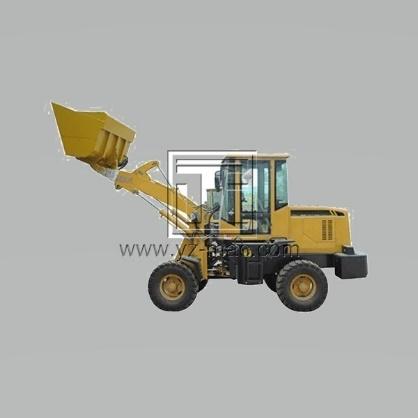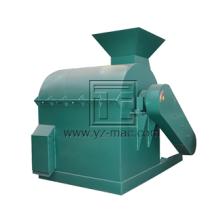Tractor compost turner
A tractor compost turner is a powerful machine specifically designed to optimize the composting process. With its ability to efficiently turn and mix organic materials, it plays a vital role in accelerating decomposition, enhancing aeration, and producing high-quality compost.
Benefits of a Tractor Compost Turner:
Accelerated Decomposition: A tractor compost turner significantly speeds up the composting process by promoting active microbial activity. By regularly turning and mixing the compost pile, it ensures better oxygenation, moisture distribution, and nutrient availability, resulting in faster decomposition and the production of nutrient-rich compost.
Enhanced Aeration: Proper aeration is crucial for successful composting. The turning action of a tractor compost turner introduces fresh oxygen into the compost pile, creating an aerobic environment that encourages the growth of beneficial aerobic microorganisms. Improved aeration helps prevent the formation of anaerobic pockets and reduces the likelihood of unpleasant odors.
Homogeneous Mixture: The continuous turning and mixing action of a tractor compost turner ensures the uniform distribution of organic materials, moisture, and microorganisms within the compost pile. This promotes a more homogeneous mixture, minimizing the formation of hot or cold spots and allowing for consistent decomposition throughout the pile.
Weed and Pathogen Control: Regularly turning the compost pile with a tractor compost turner helps to suppress weed growth and control pathogens. The high temperatures generated during the composting process, combined with thorough mixing, contribute to the destruction of weed seeds, harmful bacteria, and plant diseases, resulting in a safer and more refined compost product.
Working Principle of a Tractor Compost Turner:
A tractor compost turner is typically attached to a tractor’s three-point hitch or operated by a power take-off (PTO) system. It consists of a rotating drum or agitator equipped with paddles or flails. The turner is driven along the compost windrow or pile, effectively lifting, mixing, and aerating the materials. The adjustable height and speed settings allow for customization according to the composting requirements.
Applications of Tractor Compost Turners:
Large-scale Composting Operations: Tractor compost turners are commonly used in large-scale composting operations, such as municipal composting facilities and agricultural enterprises. They can handle significant volumes of organic waste, effectively managing compost windrows or piles for efficient decomposition and compost production.
Farm and Livestock Operations: Tractor compost turners are valuable tools for farms and livestock operations. They can effectively compost agricultural residues, crop stubble, animal manure, and other organic materials, converting them into nutrient-rich compost for soil enrichment and sustainable farming practices.
Composting Facilities: Tractor compost turners are essential in dedicated composting facilities that process a variety of organic waste materials, including food waste, yard trimmings, and bio-solids. These turners efficiently manage large compost piles, ensuring optimal conditions for rapid decomposition and the production of high-quality compost.
Land Rehabilitation and Soil Remediation: Tractor compost turners are used in land rehabilitation and soil remediation projects. They help transform landfills, degraded soils, or contaminated sites into productive areas by incorporating organic materials and promoting the restoration of soil health and fertility.
A tractor compost turner is a powerful machine that optimizes the composting process, facilitating efficient decomposition and the production of high-quality compost. Its benefits include accelerated decomposition, enhanced aeration, homogeneous mixture, and weed and pathogen control. Tractor compost turners find applications in large-scale composting operations, farm and livestock operations, composting facilities, and land rehabilitation projects.






